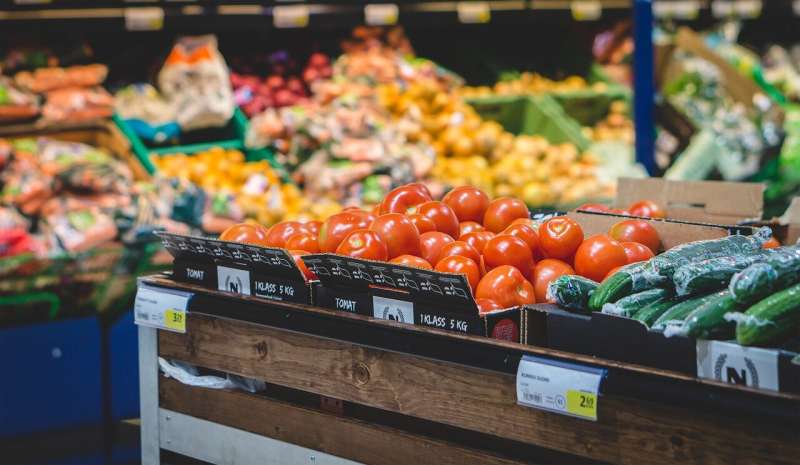This article has been reviewed according to Science X's editorial process and policies. Editors have highlighted the following attributes while ensuring the content's credibility:
fact-checked
trusted source
proofread
Greening the food supply chain: Developing sustainable food systems through interdisciplinary collaboration

Sustainability is a hot topic in just about every field that engages with the environment, including agriculture. An interdisciplinary group of researchers in UConn's College of Agriculture, Health and Natural Resources has published a paper outlining the current state of sustainable food production research in the Journal of Agriculture and Food Research.
The group includes Yangchao Luo, associate professor of nutritional sciences; Zhenlei Xiao, associate professor-in-residence of nutritional sciences; and Abhinav Upadhyay, assistant professor of animal science. Bai Qu, Luo's Ph.D. student, is the lead author on the paper.
Sustainable food production focuses on creating food systems that are environmentally sound, economically viable, and socially equitable.
"It focuses on the entire food supply chain, from farm to table, ensuring that each step is sustainable, minimizes waste, and reduces the carbon footprint," Luo says.
The paper outlines the key features of sustainable food production including environmental stewardship, economic vitality, innovation and adaptation, and social responsibility.
The paper also reviews green technologies like urban agriculture, food nanotechnology, and plant-based foods, all of which play a role in reducing the negative impacts of food production.
"This is not a new concept, but I think with the development of emergent technology, a lot of things are going on now, it is very important to revisit this concept," Luo says.
This publication provides a holistic and interdisciplinary perspective on the topic.
"Sustainable food production is a very collaborative topic," Luo says. "You cannot do everything on your own."
Sustainable food production encompasses the concept of a circular economy in which the waste from one process or product can be reused elsewhere.
"People have not cared about the waste generated, the impact to the environment, whether it's sustainable or not," Luo says. "People are pretty much profit driven. Now we have to change the whole concept or else the entire agricultural industry cannot be sustainable."
This paper reflects the College and UConn's broader commitment to sustainability, Luo explains.
"There's many things in the College and at the University, campus-wide, that flow into this area that really inspire me to dive deeper into this topic," Luo says.
Luo, co-chair for CAHNR's committee for sustainable agriculture and food production, is currently working with a group of students to develop an organic poultry feed additive made from microalgae.
"You cannot think about sustainable agriculture from a single discipline," Luo says. "It has to be highly collective and collaborative from all three areas—society, environment, and community health. You have to connect all three angles together."
More information: Bai Qu et al, Perspectives on sustainable food production system: Characteristics and green technologies, Journal of Agriculture and Food Research (2024). DOI: 10.1016/j.jafr.2024.100988
Provided by University of Connecticut





















